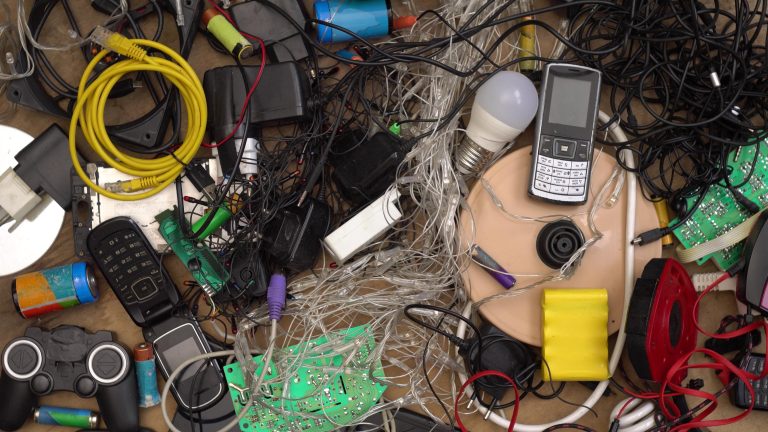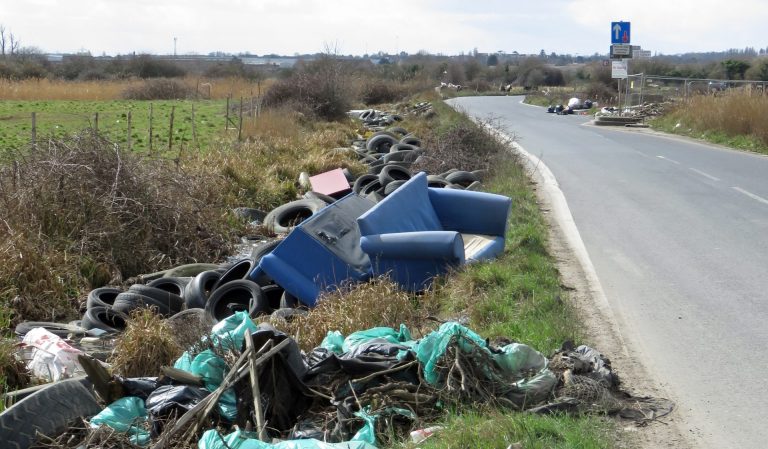Vapes have become an everyday accessory for millions of people, but when it comes to disposal, they pose a hidden danger. The batteries inside vapes, particularly lithium-ion batteries, are efficient but can be highly dangerous when not disposed of properly. A growing concern in the UK is the improper disposal of vapes in commercial waste bins, which can lead to serious fire risks, especially in waste collection vehicles.
The Problem: Improper Disposal of Vapes
Vapes are often thrown into regular waste bins when they are no longer needed or functional. However, this improper disposal can have dangerous consequences. Lithium-ion batteries, which are commonly found in vapes, are sensitive to pressure and damage. When crushed, punctured, or exposed to high heat or pressure, which is common during the waste collection process, these batteries can short-circuit, overheat and potentially ignite.
Waste collection trucks are designed to compact materials to save space, but this compression creates the perfect conditions for a damaged vape battery to spark a fire. Unfortunately, the result can be a blaze that quickly spreads within the truck, putting both the vehicle and waste collection workers at serious risk.
Why Waste Collection Vehicles Are at Risk
Waste collection vehicles are particularly vulnerable to fires caused by improperly disposed-of vapes. These trucks collect a wide variety of waste, much of which is flammable, including paper, cardboard and plastic. When a vape battery ignites in this compacted environment, the fire can spread rapidly through the vehicle.
The enclosed and compressed space within a waste truck makes it difficult to contain fires once they start and a single damaged battery is all it takes to trigger a dangerous situation. As these vehicles move through densely populated urban and industrial areas, the risk extends beyond the truck, potentially endangering nearby vehicles, workers and buildings.
Real-Life Incidents: Fires Caused by Vapes
Reports of fires in waste collection vehicles caused by vapes are on the rise. Numerous incidents have occurred across the UK, with operators having little to no warning before a fire breaks out. In many cases, the fire starts after the truck has already left a business or residential area, meaning waste collection staff are left scrambling to extinguish the fire or call emergency services.
These incidents not only pose a severe safety risk to waste collection workers and the public but also cause costly damage to the vehicles themselves. Fires can disrupt regular waste services, leading to delays and additional costs for both businesses and waste management companies.
How to Properly Dispose of Vapes
To prevent these dangerous fires, it’s essential to dispose of vapes responsibly. Here are a few steps to ensure safe vape disposal:
- Use Designated Vape Recycling Points: Many vape manufacturers and retailers offer take-back schemes for used vapes. Additionally, local electronic recycling points can safely handle vapes and their batteries, ensuring they are disposed of properly.
- Don’t Toss Vapes in General Waste: Vapes should never be thrown into regular waste bins. Doing so increases the risk of fire during the waste collection process. Make sure you always use a specialised electronic or hazardous waste bin for vape disposal.
- Educate Employees or Customers: Businesses can play a vital role in preventing fires by raising awareness of the dangers associated with improper vape disposal. Clear signage near waste bins and recycling stations can help remind staff and customers to dispose of vapes safely.
- Set Up Separate Bins for Hazardous Waste: If your business regularly deals with electronic devices, consider setting up designated bins for hazardous waste, including vapes. This will ensure they are separated from general waste and handled properly.
- Seek Professional Guidance: If you’re unsure how to dispose of vapes or other electronic devices safely, consult with your local waste management provider. They can offer advice on the best practices for handling hazardous materials.
A Small Device, A Big Risk
Improperly disposing of vapes in commercial waste bins might seem like a minor issue, but it can have serious, even dangerous, consequences. Fires in waste collection vehicles not only threaten the safety of workers and the public but can also cause extensive damage to equipment and disrupt essential services.
By following a few simple guidelines and ensuring proper vape disposal, businesses and individuals can help reduce the risk of these incidents and contribute to a safer, more efficient waste management system.
Proper disposal practices are a small step that can prevent major accidents and ensure a more sustainable future for waste management.














